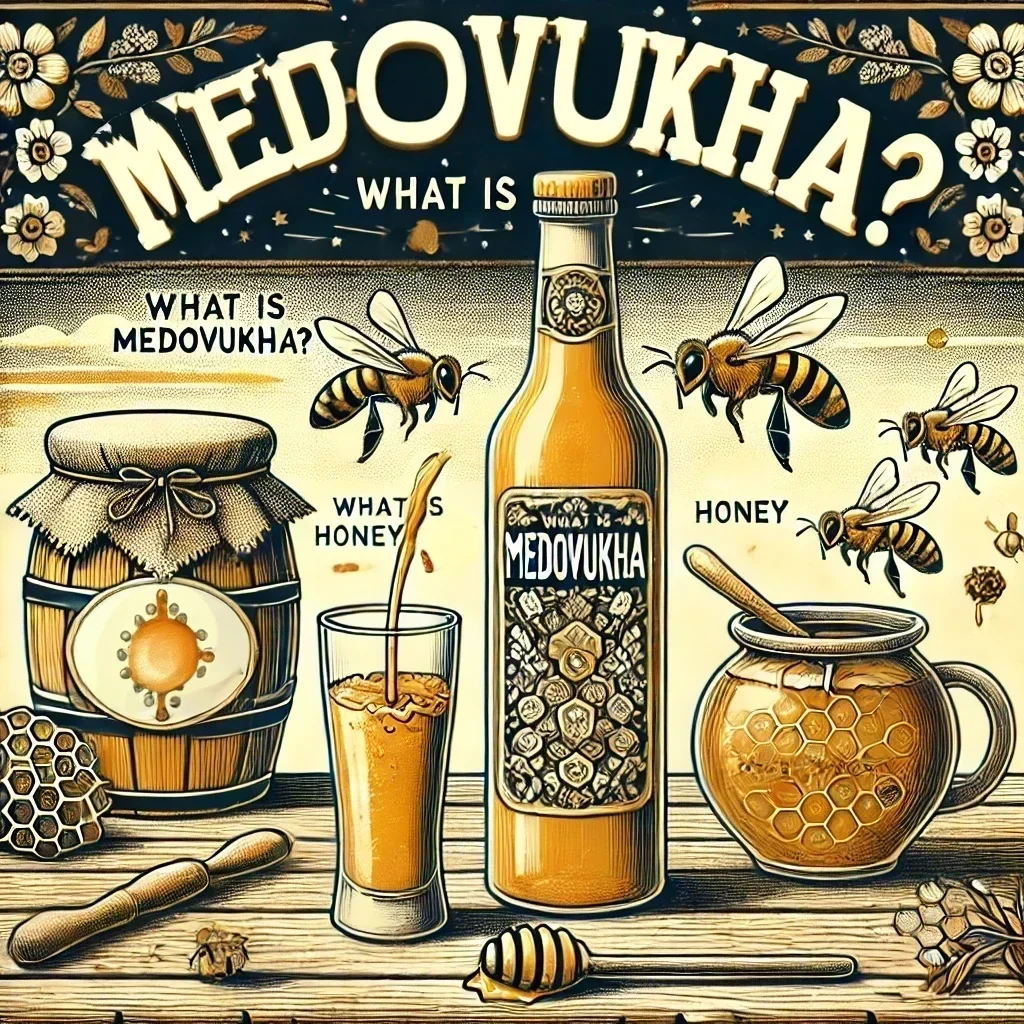In any exploration of alcoholic beverages, Medovukha is often a surprising contender—ancient and lesser-known, yet rich in tradition and flavor. To provide a comprehensive comparison, we must examine
Medovukha in Pop Culture: From Folklore to Modern Cinema
In the pantheon of beverages that have achieved cultural immortality, Medovukha often seems like a forgotten relic. While wine, beer, and even mead have secured their place in the annals of pop cultur
The Economics of Medovukha: From Cottage Industry to Craft Beverage
When one thinks of honey, it often evokes images of golden sweetness, flowing from the hive to the jar—a simple, natural product. Yet, when that honey is transformed through the ancient art of ferment
Medovukha in Modern Cuisine: Pairing Honey Brews with Food
When considering the culinary traditions of Eastern and Central Europe, one can hardly ignore a recurring and ancient element: honey. Across the centuries, this golden nectar has been cherished not just as food, but as medicine, sweetener, and, intriguingly, the foundation of one of the region’s most unique alcoholic beverages—Medovukha. A drink born of honey’s alchemy with fermentation, Medovukha has quietly lingered through history, a relic of Slavic tradition that has begun to resurface in modern cuisine.
What may surprise some is that Medovukha, far from being merely a historical curiosity, is finding its way into contemporary food pairings, where it can elevate even the humblest of dishes. But how does this ancient brew, once sipped by peasants and princes alike, fit into the world of 21st-century dining? And more importantly, can its sweet, floral character enhance the flavors of today’s rich culinary tapestry? The answer, as we shall explore, lies in the unexpected but harmonious relationships Medovukha forms with the foods of its homeland—and beyond.
Medovukha and the Hearty Fare of Eastern Europe
If one were to design a drink specifically to complement the robust and hearty cuisine of Eastern and Central Europe, they could hardly do better than Medovukha. This region’s food is built around deep, earthy flavors—smoked meats, dense stews, pickled vegetables—that call for a drink capable of balancing and brightening such intensity. Medovukha, with its light effervescence and honeyed sweetness, fits this role with surprising ease.
Let us consider, for instance, the classic Polish kielbasa, that smoky, garlicky sausage beloved throughout the region. The richness of the sausage could easily overpower many beverages, but not Medovukha. The honey’s natural sweetness cuts through the fat, while the slight tang of the fermented drink acts almost like an acidic counterpoint, refreshing the palate between bites. It’s an ideal pairing, and one that highlights how well this ancient brew plays with the bold, smoky flavors that dominate much of Eastern Europe.
Similarly, the Hungarian goulash, with its spicy, paprika-heavy broth, finds an unexpected ally in Medovukha. The floral sweetness of the honey brew tempers the heat and deep umami of the stew, while the slight fizz lifts the heaviness of the dish, making each spoonful feel lighter than the last. It’s a culinary dance of contrasts—spice and sweetness, heat and refreshment—each making the other more compelling.
The Art of Pairing with Pickles and Ferments
Eastern Europe’s love for fermentation is well-documented, and its cuisine reflects this affection with an array of pickled vegetables, fermented dairy, and sour soups. These dishes, often sharp and tangy, present a particular challenge for most beverages, but once again, Medovukha shines where others falter.
Take, for example, a simple serving of Polish pickled cucumbers, or Ukrainian kapusta (fermented cabbage). These are foods that beg for balance—something to soften their sharp edges without masking their vibrancy. Medovukha, with its gentle sweetness, acts as a perfect foil. The drink’s acidity, though mild, works in harmony with the pickles, enhancing their complexity rather than competing with it. In this case, Medovukha becomes more than a beverage; it acts almost like a condiment, amplifying the dish’s flavors in subtle ways.
Even the legendary Russian borscht, with its deep, sour tang and earthy sweetness, benefits from the inclusion of Medovukha. The brew’s honeyed notes complement the natural sweetness of the beets, while the mild carbonation keeps the soup from feeling too heavy. It’s a surprising but delightful pairing, where the ancient drink enhances the deeply rooted flavors of Eastern Europe’s most iconic dishes.
Slavic Traditions on the Modern Table
As we move deeper into Slavic cuisine, we encounter foods that, much like Medovukha itself, are steeped in centuries-old traditions. Buckwheat pancakes, hearty porridges, and smoked fish have been staples for generations, each tied to the land and its rhythms. Medovukha, once drunk as a communal toast at weddings and festivals, feels right at home when paired with such simple yet satisfying fare.
Russian blini, those small, delicate pancakes made from buckwheat, offer an intriguing canvas for Medovukha pairings. Served with sour cream, caviar, or smoked salmon, blini embody the balance of richness and simplicity. Here, Medovukha serves as a refreshing contrast, its sweetness playing off the saltiness of the fish or the tang of the sour cream. It’s a pairing that elevates a humble dish into something more refined, while still respecting its rustic origins.
Medovukha also finds a perfect match in pelmeni, the boiled dumplings filled with savory meats, popular in Russia and Ukraine. The dumplings, dense and flavorful, can easily feel heavy after a few bites, but when paired with Medovukha, they gain a new life. The effervescence of the brew cuts through the richness, while the honeyed flavor adds a note of complexity that complements the dumplings’ meaty filling.
Medovukha and the Sweet Temptation of Desserts
As we conclude this journey through the pairing possibilities of Medovukha, it would be remiss not to explore its natural role alongside desserts. After all, honey is, by its very nature, a sweet indulgence, and the idea of pairing Medovukha with traditional Eastern European sweets seems almost inevitable.
Polish sernik, a dense cheesecake made with farmer’s cheese, is a prime example. Rich but not overly sweet, sernik begs for a drink that can complement its creaminess without overwhelming it. Medovukha, with its floral notes and gentle sweetness, fits the bill perfectly. The honey tones enhance the subtle flavors of the cheese, while the acidity of the brew keeps the experience light and refreshing.
Similarly, Russian pryaniki—honey spice cookies—create a natural partnership with Medovukha. The drink’s sweetness mirrors the warmth of the spices, while the slight fizz of the brew adds a playful contrast to the cookie’s soft, dense texture. Together, they form a comforting, harmonious duo that feels timeless.
Medovukha’s Unexpected Revival in the Modern Culinary World
What makes Medovukha such an intriguing presence in modern cuisine is its versatility. This ancient drink, long thought of as a relic of the past, is finding new life as chefs and home cooks alike rediscover its potential as a pairing partner. It’s a drink that spans the ages, connecting today’s dining table with the traditions of centuries past.
In an era where fusion cuisine and experimentation are celebrated, Medovukha stands as a reminder that sometimes, the most exciting flavors can come from the oldest sources. Its subtle complexity—rooted in the simple ingredients of honey and water—offers a bridge between the bold, hearty flavors of Eastern European cuisine and the refined tastes of modern gastronomy.
Whether paired with smoky meats, tangy pickles, or sweet desserts, Medovukha brings a quiet elegance to the table, enhancing without overwhelming, complementing without overshadowing. It is, in every sense, the drink of the past that belongs to the future.
As the culinary world continues to explore and experiment, Medovukha will no doubt find itself at the heart of more innovative pairings and unexpected culinary experiences. In the end, it is not merely a drink—it is a testament to the enduring power of tradition, a symbol of how the past can shape and enrich our modern lives.
A Journey Through the Medovukha Regions
Across the vast expanse of Eastern Europe, where honey has long been seen as the nectar of gods and peasants alike, Medovukha has endured as a drink rich in both history and taste. The honey-based alc
The Health Benefits and Myths of Medovukha: A Time-Honored Elixir of Honey
Disclaimer:
Before we embark upon this exploration of Medovukha’s potential benefits and the myths that swirl around it, let us first set a solid foundation. While this ancient honeyed brew is often celebrated for its reputed health-promoting qualities, it should not be mistaken for a substitute for scientifically grounded medical advice. The observations herein are steeped in tradition and folklore, but as always, the wise approach is to consult your physician before making any dietary or health decisions.
From the annals of Slavic lore to the modern table, Medovukha stands as a drink of mystique, forged from the alchemy of honey, water, and fermentation. In ages long past, it was hailed not merely as a drink to slake one’s thirst, but as a veritable potion of life—claimed to heal, to strengthen, to nourish body and soul alike. And while Medovukha’s sweetness might still tempt us with the promise of health and vitality, we must ask ourselves: what lies beneath the folklore? Does this golden brew truly offer medicinal virtues, or are we indulging in nothing more than time-honored myths?
As with many things steeped in antiquity, the truth is a delicate blend of fact and fable. Let us now dive into the depths of this ancient drink and explore both its documented benefits and the more fanciful tales that surround it.
Honey: The Heart of the Elixir
At the core of Medovukha lies honey, a substance revered for centuries for its myriad of beneficial properties. Even the earliest healers knew of honey’s worth, whether applied to wounds or mixed into concoctions for internal ailments. In the making of Medovukha, honey is not merely a flavoring agent—it is the very soul of the drink, believed to impart its natural virtues to those who partake of it.
Antioxidant Properties
It is well known that honey is rich in antioxidants, especially polyphenols, which have been shown to combat oxidative stress and inflammation. In ages past, these same properties led our ancestors to believe that Medovukha held the power to restore vitality and stave off the wear of time. To this day, antioxidants are linked with a reduced risk of chronic diseases such as cardiovascular ailments and certain cancers.
Yet, we must temper this enthusiasm with reason. While honey itself offers a bounty of antioxidants, once it has been fermented into Medovukha, the effects of alcohol come into play. The drink may retain some of honey’s benefits, but they do not come without cost—alcohol, after all, is no panacea.
Digestive Aid
It was long believed that Medovukha, like many fermented beverages, aided digestion. This belief likely stems from honey’s natural prebiotic qualities, which can promote the growth of beneficial bacteria in the gut. A small glass of Medovukha after a hearty meal was said to ease digestion and settle the stomach.
While there may be a kernel of truth here, one must bear in mind that the alcohol present in Medovukha could, for some, do more harm than good in the digestive department. Moderation, as ever, remains the cornerstone of wisdom.
The Myths of Medovukha: Fables or Forgotten Truths?
No drink of such antiquity could escape the embellishments of folklore. Over the centuries, Medovukha has been credited with a wide array of powers, from the plausible to the fantastical. Let us now examine these myths, one by one, and see how they hold up under the scrutiny of modern knowledge.
Myth 1: Medovukha as a Panacea
The ancient Slavs believed that Medovukha had the power to cure virtually any ailment. Whether one suffered from the common cold or some deeper malady, a cup of this honeyed drink was said to set things right. Some even claimed it could protect against death itself—surely, no mortal drink can boast of such potency.
And indeed, these grand claims must be met with skepticism. While honey, in all its forms, has soothing qualities, Medovukha is no all-encompassing remedy. Its warmth may comfort a weary soul and soothe a sore throat, but let us not mistake such comforts for cures.
Myth 2: The Drink of Longevity
In many a village, tales were told of elders who credited their long lives to Medovukha, claiming that a daily glass was the key to robust health and vigor. Honey, after all, was the food of the gods, and it was thought that when fermented, its life-giving properties grew even stronger.
Alas, the reality is less magical. While honey can indeed contribute to a healthy diet, and moderate alcohol consumption may have its place, there is no evidence to suggest that Medovukha can prolong life. In fact, we know that excessive alcohol consumption tends to shorten life rather than lengthen it.
Myth 3: Fertility in a Cup
It is said that the tradition of the honeymoon derives from the ancient practice of giving newlyweds a supply of Medovukha to consume during their first month of marriage. The drink was believed to promote fertility and ensure the birth of many strong children.
Though a charming story, modern science does not support the notion that Medovukha holds any special powers over fertility. As much as we might wish to believe in such magical drinks, the creation of life depends on far more than fermented honey.
Though the myths surrounding Medovukha may have lost some of their luster, this drink still has much to offer in our modern lives. Its honey-based origins do impart certain health benefits, provided it is enjoyed with due caution and awareness of its alcohol content. A small glass after dinner may indeed offer some digestive comfort, and the antioxidants from honey may linger within the drink.
But let us be clear—Medovukha should be enjoyed for what it is: a delicious relic of history, a drink that connects us to the past, but not a medicine in any serious sense. If you wish to benefit from honey’s medicinal properties, it is far wiser to consume it raw and unfermented, rather than relying on Medovukha for health gains.
Medovukha, with its golden hue and rich, sweet taste, is a testament to the enduring human desire to draw nourishment from the natural world. It is a drink that invites reflection, a connection to the land and the people who first crafted it. And though its health benefits may not be as wondrous as the myths suggest, it remains a symbol of vitality and community.
In the end, whether you raise a glass to its potential health benefits or simply for the love of tradition, let it be done with respect for its ancient roots—and with an understanding that balance, not excess, is the key to its enjoyment. For it is in balance that we find both pleasure and health, and in the stories we tell, we keep alive the spirit of those who came before.
So drink wisely, my friends, and let the honeyed sweetness of Medovukha remind you that sometimes, the greatest health benefit of all is simply the joy of shared history.
What is Medovukha?
In the annals of ancient Slavic tradition, hidden within the veils of history, lies a mysterious elixir known as Medovukha. This honey-based beverage, often overshadowed by its more well-known cousin,
What is Mead?
In the mystical twilight of human history, there exists a beverage that has enchanted kings, inspired poets, and bridged the divine and the mortal. This ancient elixir, known as mead, is a drink of ho








